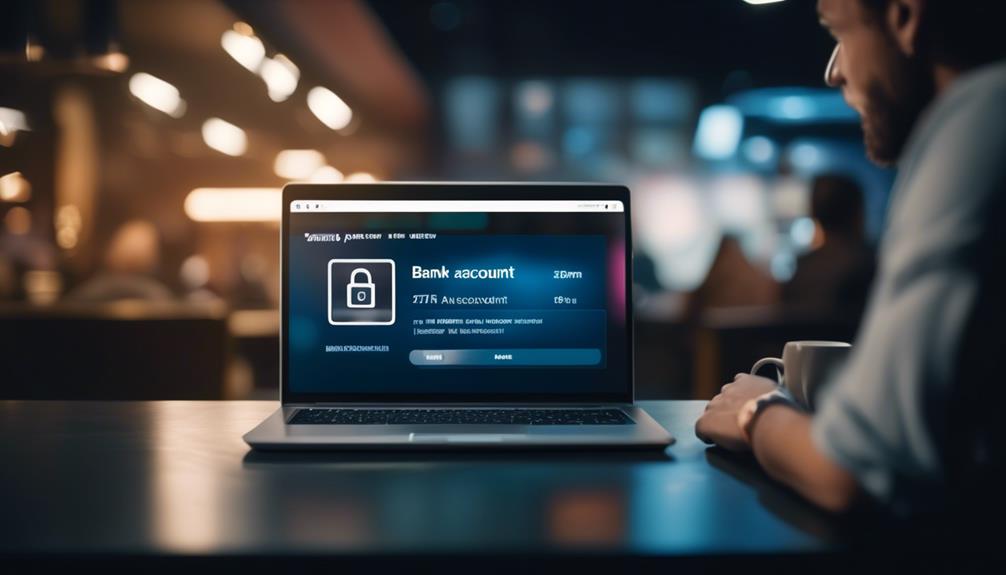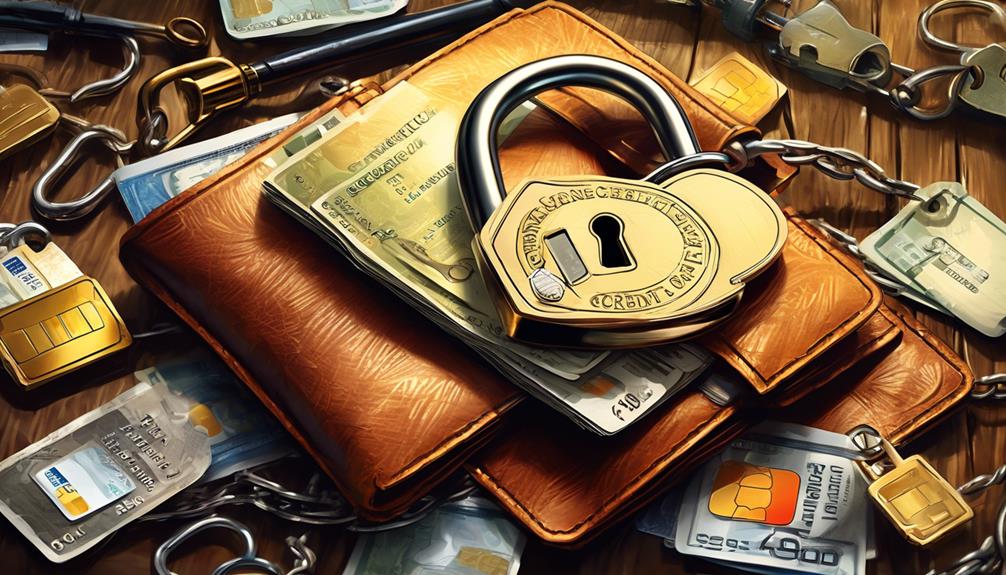As digital transactions become more common, there's a growing concern about financial data exposure. While online banking and digital payments are convenient, they also pose security risks. These include sophisticated hacking techniques and simple phishing scams. It's crucial to understand these risks and how to mitigate them to protect your financial well-being.
Understanding Financial Data Vulnerabilities

Financial data vulnerabilities result from the complex interplay of technology, human, and systemic factors. Therefore, it is crucial to proactively identify and address potential weaknesses. The security of financial data online is paramount due to the prevalence of personal information. This information can be exploited for identity theft in the event of data breaches. Understanding the intricacies of these vulnerabilities is crucial in safeguarding sensitive financial information. Online transactions and interactions present opportunities for malicious actors to exploit security gaps. This compromises the safety of financial data. Identity theft is a prevalent risk in the digital age and often stems from these vulnerabilities. Consequently, robust security measures are necessary. Data breaches, whether through sophisticated cyber-attacks or human errors, can lead to substantial financial and reputational damage.
Common Online Financial Scams
Understanding common online financial scams is crucial due to the risk of identity theft. Identity thieves use various tactics, such as account takeover, phishing, and investment fraud. Account takeover involves stealing customer information to access personal accounts or create new ones using stolen data. Signs of account takeover include unfamiliar transactions, missing funds, unauthorized updates, unexpected notifications, and missing statements. Phishing scams deceive individuals into providing sensitive financial information through fake websites or emails. Investment fraud entices victims with false promises of high returns, leading to substantial financial losses. To protect your online financial data, avoid clicking on suspicious links, use strong, unique passwords, and employ multifactor authentication and device security. Regularly monitoring and reporting unauthorized activities, placing fraud alerts, and reviewing account statements are essential practices to safeguard against common online financial scams perpetrated by identity thieves.
Importance of Secure Passwords

Implementing multi-factor authentication provides an extra layer of security. Strong, complex passwords are crucial defenses against unauthorized access. Regularly updating passwords helps mitigate the risk of compromised accounts.
Password Complexity
Enhancing online financial security requires creating strong, unique passwords for each account and regularly updating them. Complex passwords with letters, numbers, and special characters should be used. Avoid using easily guessable information like birthdays or pet names. Refrain from using the same password for multiple accounts, as this increases the risk if one account is compromised. Consider using password management software to securely store and manage passwords. Implementing these measures can significantly improve financial data security and reduce the risk of unauthorized access or breaches.
Multi-factor Authentication
Implementing multi-factor authentication increases online account security by requiring multiple authentication factors. This reduces unauthorized access and is crucial for protecting sensitive financial data. Passwords, text message codes, and biometrics can enhance financial data protection. Security software with multi-factor authentication effectively prevents breaches. Compared to single-factor authentication, multi-factor provides stronger defense. Overall, multi-factor authentication is essential for safeguarding personal financial information.
Regular Password Updates
After stressing multi-factor authentication's importance for financial data protection, we now emphasize regular password updates. These updates crucially enhance online security by safeguarding financial data and accounts from unauthorized access. Using strong and complex passwords is essential for this purpose, as they are difficult to guess. Moreover, the practice of regularly updating passwords reduces the risk of compromised accounts and data breaches. It is vital to use unique passwords for different accounts and update them consistently to prevent unauthorized access. By doing so, individuals actively contribute to creating a secure online environment and protecting their financial data from cyber threats.
Two-Factor Authentication Benefits

Two-factor authentication adds an extra layer of security by requiring two types of factors for authentication, reducing unauthorized access risk. It combines a password with a code sent to the user's phone, significantly reducing unauthorized account access. This method helps protect against stolen login credentials and adds an additional barrier against cybercriminals. In contrast to single-factor authentication, two-factor authentication provides a more robust defense. It complements other security measures like regular patches and updates. Implementing two-factor authentication is crucial for securing online financial transactions and provides greater peace of mind.
Encryption for Data Protection
Data protection in finance heavily relies on encryption. To enhance cybersecurity, understanding encryption methods and vulnerabilities is crucial. Financial institutions and individuals can improve security by addressing these points.
Key Encryption Methods
By using cryptographic keys, plaintext data is transformed into ciphertext and vice versa, ensuring secure transmission and storage. Consequently, it enhances data protection. Key encryption methods are critical for safeguarding financial and personal information from unauthorized access. Asymmetric encryption enhances security by using a pair of keys, while symmetric encryption employs a single key for efficient data protection. Encryption methods are essential for securing financial institutions, operating systems, public computers, and software protection. Overall, these encryption methods are indispensable in the modern digital landscape, providing a secure framework for protecting sensitive financial and personal data.
Vulnerabilities in Encryption
Vulnerabilities in encryption can be exploited by cybercriminals, compromising data security, risking sensitive information. Weak encryption, flawed implementation, and inadequate key management increase financial data risk. Encryption backdoors and unauthorized access weaken sensitive information security. Cybercriminals exploit encryption vulnerabilities to intercept financial data, leading to potential financial loss and identity theft. To mitigate risks, install security measures like VPNs and use robust encryption methods. Staying informed about the latest encryption standards helps maintain data integrity and confidentiality.
Importance of Encryption
Financial data protection relies heavily on robust encryption methods to safeguard against cyber threats and unauthorized access. Encryption is crucial for maintaining the privacy and integrity of financial data, addressing vulnerabilities, and promoting secure online transactions. Here's why encryption is important:
- Data Security: Encryption safeguards financial data from cybercrime, identity theft, and fraud by encoding information to make it unreadable without the correct decryption key.
- Preventing Unauthorized Access: Utilizing encryption for online transactions and communication helps prevent unauthorized access and shields sensitive financial information from interception and theft.
- Reducing Risks: Encryption ensures that even if data is intercepted, it remains secure and unreadable, reducing the risk of financial data breaches and unauthorized access.
Regular Financial Monitoring
Regularly reviewing account activity and statements is crucial for detecting unauthorized transactions or unusual money movements. In the realm of online financial security, monitoring one's financial accounts is vital. This allows individuals to promptly spot irregularities and take necessary action. Keeping contact information updated with financial institutions ensures timely notifications of any account changes or suspicious activity. Prompt reporting of unauthorized or mistaken activities is vital in mitigating potential damage. In the event of a breach, changing usernames and passwords for compromised accounts provides added protection. Thorough and frequent review of credit reports is essential to identify signs of identity theft or unauthorized activities. By consistently monitoring financial data and account activity, individuals can actively participate in safeguarding their financial well-being online.
Role of Regulatory Measures

Regulatory measures are crucial for financial security, ensuring protection of data through guidelines and audits. These measures promote encryption and advanced security technologies to counter cyber threats. Furthermore, they advocate for best practices like two-factor authentication and routine account monitoring. Regulatory bodies also educate consumers on financial data privacy, aiming to raise awareness and foster safe practices. Overall, regulatory measures establish a secure environment for online financial activities, ensuring data integrity and fostering trust.
Frequently Asked Questions
How Is Your Online Personal Data at Risk?
Online personal data is vulnerable to phishing scams, identity theft, and privacy concerns. Therefore, cybersecurity measures and data encryption are essential for protection. Additionally, vigilance in online transactions, strong passwords, and multifactor authentication are crucial. Keeping software updated is also important.
Is It Safe to Enter Financial Information Online?
When entering financial information online, it is generally safe if using secure websites with data encryption. However, privacy concerns and cyber threats still exist. Therefore, users should exercise caution, use multifactor authentication, and monitor online transactions to reduce the risk of identity theft.
How Can I Protect My Financial Information Online?
To safeguard financial information online, it's essential to utilize two-factor authentication, strong passwords, encryption, and firewalls. Additionally, staying alert to phishing scams, monitoring credit, and promptly addressing data breaches are crucial. Furthermore, ensuring secure online transactions and banking methods is of utmost importance.
Why Is It Important to Keep Your Data Safe Online?
It's essential to keep data safe online. By using encryption and strong passwords, you can prevent data breaches and identity theft. Additionally, cyber attacks, phishing scams, and digital fraud emphasize the need for robust security in online banking.
Conclusion
In today's digital age, financial data is constantly at risk due to account takeover methods, phishing scams, and data breaches. Therefore, individuals must vigilantly protect their information by implementing secure passwords, using two-factor authentication, and regularly monitoring their financial accounts. Staying informed and taking proactive measures are crucial to ensure the security of financial data in an increasingly vulnerable online landscape.



